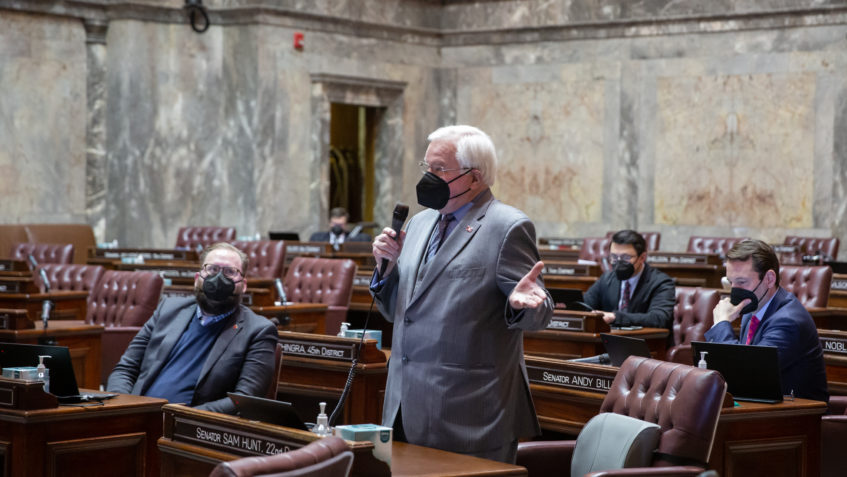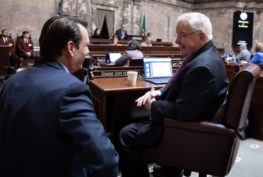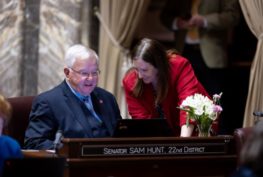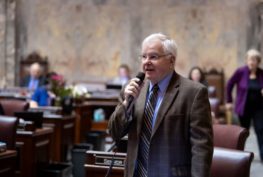Dear Friends and Neighbors,
The long road for bills to the Governor’s office continues. The Legislature reached its halfway point this week and the Senate will begin considering bills passed by the House.
Today, I want to focus on three bills that have passed the Senate, each of which has a direct impact on our district.
Senate Bill 5265
Senate Bill 5265, which I sponsored, will help high school students have a more meaningful senior year. High school is about classes and grades, but it’s about so much more than that. It is about football and basketball, debate, band, proms and parties. All of these were turned upside down last March when COVID-19 gripped the state and world.
High school students have missed a lot since last March. SB 5265 aims to give them a more meaningful conclusion to their high school experience by allowing them to have an extra bridge year to participate in activities.
I worked closely with the Office of Superintendent of Public Instruction and Washington Interscholastic Activities Association (WIAA) in drafting the bill.
In order to participate, students who have not graduated, and are enrolled in high school, running start, or college in the high school may choose to participate in an extra year of activities.
Another important provision of the bill will allow students who received a “D” or “F” grade during the past year to take the class again and, if the student gets a better grade, replace the poor grade with a better one.
Assuming classes, sports and activities return closer to normal in 2021-22, the bill will give many students the opportunity to have a more normal and rewarding high school experience.
Senate Bill 5395
Last year at this time, there were rumblings that COVID-19 would cause us to make big changes, probably for a couple weeks, or months, in the way we work.
The session had just ended and legislative staff were sent home to work remotely. Legislative offices were locked and buildings closed.
State employees—without warning—were forced to work remotely whenever possible.
Agencies were scrambling for masks, gloves, and supplies while trying to figure out how to continue to serve the public.
Some state employees had home offices, computers, and high-speed internet. Others had some or none of these.
Suddenly state government was forced to turn on a dime.
State laws on working from home were far from clear. Some agencies allowed employees to take equipment home—others did not.
As we approach the one-year mark of this tidal shift, there are still uncertainties and unanswered questions.
Senate Bill 5395, which I sponsored, tries to clarify the situation. I formed an informal work group composed of a number of state agency representatives to seek short- and long-term solutions. This bill aims to apply what we have learned about remote work to improve working conditions for state employees who are, and will be, working from home. And that will help maintain quality state services for the public.
Senate Bill 5038
Finally, Senate Bill 5038, which I co-sponsored, would make it unlawful for anyone to openly carry a firearm at a demonstration on the west state capitol grounds (west of Capitol Way). It would apply to any building on the state capitol grounds, in any state legislative office, or at any location of a public legislative hearing or meeting for the duration of the event. This prohibition would also apply within 250 feet of a demonstration at a public place after a duly authorized state or local law enforcement officer advises the person of the demonstration and directs the person to leave until they no longer possess or control a weapon. However, the prohibition does not apply to people carrying a firearm on their own private property.
Each of these bills now moves to the House where I hope they will be received favorably.




